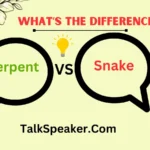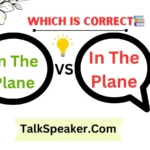Last updated on October 21st, 2024 at 03:32 pm
When we encounter ideas that stretch the boundaries of possibility, we often describe them as “far-fetched.”
This term is more than just a casual expression; it has a rich history and an evolving usage that reveals much about how we perceive and communicate the implausible.
In this blog post, we’ll dive deep into the term “far-fetched,” examining its definition, origins, historical use, modern applications, and more.
Let’s embark on this journey to uncover the nuances of this intriguing phrase.
Understanding the Term “Far-Fetched”
The term “far-fetched” is used to describe something that is considered unlikely, improbable, or implausible.
It suggests that an idea or story is so outlandish or unrealistic that it seems to be stretched beyond reasonable limits.
Contextual Usage:
- In Everyday Conversation: People use “far-fetched” to critique or dismiss ideas that seem too unrealistic or imaginative. For example, “The idea that aliens built the pyramids is far-fetched.”
- In Literature and Media: Writers and critics often use the term to discuss plotlines or scenarios that stretch credibility. For example, “The ending of the movie was far-fetched and hard to believe.”
The Origins of the Word “Far-Fetched”
The phrase “far-fetched” has its roots in Old English and Middle English, reflecting how language evolves to meet the needs of its speakers.
Historical Context
The term “far-fetched” combines two straightforward words:
- “Far”: Signifying a great distance.
- “Fetched”: Meaning obtained or brought back.
When combined, the phrase evokes the idea of something that has been pulled from a great distance, thus implying it is removed from reality or common sense.
Etymology and Historical Use
The etymology of “far-fetched” reveals its evolution from a literal to a figurative term.
Breakdown of Components
- “Far”: Derived from Old English feor, meaning distant or remote.
- “Fetched”: Comes from Middle English fecchen, meaning to bring or retrieve.
The phrase initially described literal acts of retrieving items from a great distance but gradually adopted a figurative meaning to describe implausible ideas.
Historical Use
In earlier centuries, “far-fetched” was used more literally. Over time, it shifted to describe notions or stories that seemed implausible or overly imaginative.
Evolution in Modern English
In modern English, the term “far-fetched” has evolved to cover a range of contexts and nuances.
Changes in Usage
- Contemporary Media: In film and literature, “far-fetched” is often used to critique overly imaginative plots or unrealistic scenarios.
- Daily Conversations: People use it to dismiss ideas that seem overly improbable or detached from reality.
Influence of Media and Culture
Pop culture and media have played a significant role in shaping how we perceive and use “far-fetched.” For example, science fiction and fantasy genres often explore far-fetched concepts, but these ideas are accepted within their own context, highlighting how the term’s application can vary based on genre and audience expectations.
Common Usage of “Far-Fetched”
Understanding how “far-fetched” is used in different contexts helps clarify its meaning and implications.
Typical Scenarios and Contexts
- In Fiction: Characters or plotlines that seem improbable or exaggerated might be labeled as “far-fetched.”
- In Argumentation: When presenting a case or argument, if a suggestion seems unlikely or implausible, it may be criticized as “far-fetched.”
Comparison with Similar Terms
| Term | Meaning | Usage |
| Implausible | Unlikely to be true or believable | Used to describe something that lacks credibility. |
| Unbelievable | Not able to be believed or accepted | Emphasizes extreme improbability. |
| Outlandish | Extremely unusual or absurd | Often used to describe bizarre or eccentric ideas. |
Examples of “Far-Fetched” in Sentences
Illustrative examples help to clarify how “far-fetched” functions in different contexts.
Illustrative Sentences
- In Literature:
- “The plot twist where the protagonist discovers a hidden realm inside a book was entertaining but felt far-fetched.”
- In Everyday Conversation:
- “It’s a bit far-fetched to think that a single person could change the world overnight.”
- In Media and Entertainment:
- “The idea that a character could survive an explosion without a scratch was far-fetched, even for an action film.”
Why People Use the Term “Far-Fetched”
Understanding the motivation behind using “far-fetched” provides insight into its rhetorical and psychological impact.
Psychological and Rhetorical Reasons
- Skepticism: The term reflects a skeptical attitude towards ideas that seem improbable or unrealistic.
- Emphasis on Improbability: It highlights the perceived distance from reality or common sense.
Criticism and Skepticism
The term “far-fetched” is not without its criticisms.
Common Critiques
- Dismissal of Creativity: Some argue that labeling ideas as far-fetched can stifle creativity and discourage innovative thinking.
- Misapplication: The term can sometimes be used to dismiss ideas without proper consideration, leading to missed opportunities for novel solutions or perspectives.
Situations Where the Term Might Be Misapplied
- In Emerging Fields: New scientific theories or technological innovations might initially seem far-fetched but later prove viable.
- Cultural Differences: What seems far-fetched in one cultural or contextual setting might be entirely plausible in another.
Having trouble with English? We make it simple with easy tips and guides to help you improve.
Start learning and boost your skills Talk Speaker.
Encouraging Realism
Balancing skepticism with open-mindedness is crucial for constructive discourse.
Balancing Skepticism with Open-Mindedness
- Critical Thinking: Evaluate ideas based on evidence and reasoning rather than dismissing them outright.
- Encouraging Innovation: Allow space for imaginative and unconventional ideas to be explored and tested.
Encouraging Thoughtful Discourse
- Fostering Dialogue: Engage in discussions that consider various perspectives and possibilities.
- Promoting Exploration: Support research and experimentation even if ideas seem initially far-fetched.
Conclusion
The term “far-fetched” encapsulates our natural inclination to question the improbable and challenge the unrealistic.
By understanding its origins, evolution, and usage, we gain valuable insights into how we interpret and communicate ideas that stretch the boundaries of what we consider possible.
Balancing skepticism with a willingness to explore new ideas helps us navigate the fine line between imagination and reality, ensuring that we do not dismiss potentially transformative concepts too quickly.
Additional Resources
For further reading on the term “far-fetched” and its usage, consider exploring the following resources:
- Merriam-Webster Dictionary – Definition of Far-Fetched
- Oxford English Dictionary – Historical Usage of Far-Fetched
- Cambridge Dictionary – Understanding Far-Fetched
By examining the term “far-fetched” from multiple angles, we gain a deeper appreciation of how language evolves and shapes our understanding of the world.

Amelia Harris, a passionate educator, simplifies English grammar and vocabulary for learners of all levels. With her engaging style, mastering English has never been easie




